-
28 August 2015
- From the section Africa
Date: Fri, 28 Aug 2015 23:42:29 +0200
South Sudan strife
South Sudan has what many business people describe as a "war economy", as they battle to keep their companies afloat as a result of the brutal conflict which broke out between government and rebel forces in December 2013.
With President Salva Kiir finally signing a peace deal on Wednesday, the hope is that a step has been taken towards ending the conflict - though many question whether the agreement will be implemented as seven previous ceasefire deals have collapsed.
But the conflict - which has killed tens of thousands of people and left more than two million homeless - has not dampened the resilience of young people such as Rachael Aleko Aguer.
Based in the capital, Juba, she launched a lifestyle magazine, Real Woman, in February 2015, well over a year into the conflict.
She told the BBC that she had huge hopes for her country - which became independent in 2011 after splitting from Sudan - and thinks her publication can contribute towards its development.
Soaring prices
But times are tough, and she could not afford to print the July issue.
"Business is not as good as it used to be," Ms Aguer told the BBC.
"There are increases in prices and in my case I do the printing of the magazine outside of my country because there are few printers here and they are expensive. I have skipped one publication because there were no dollars."
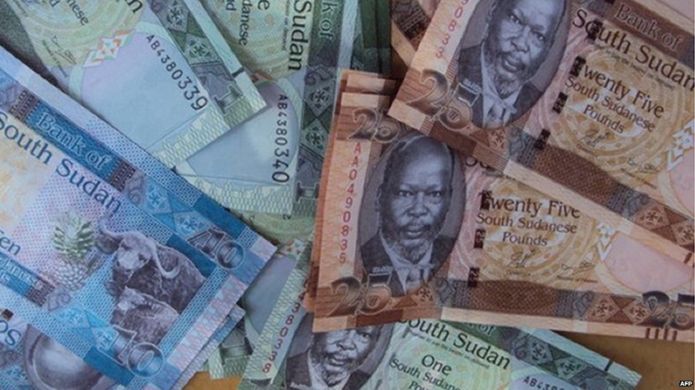
The scarcity of hard currency, particularly the US dollar, is a big problem, along with the sharp fall in the value of the South Sudanese pound. The official rate is 2.96 pounds for a dollar; on the black market it hovers around 14.
As a result, life is increasingly expensive because South Sudan relies heavily on imports.
Ms Aguer said both the fare for the motorbike taxi she uses to get to work and the cost of her lunch have doubled recently.
"I don't know how it'll be like by next week."
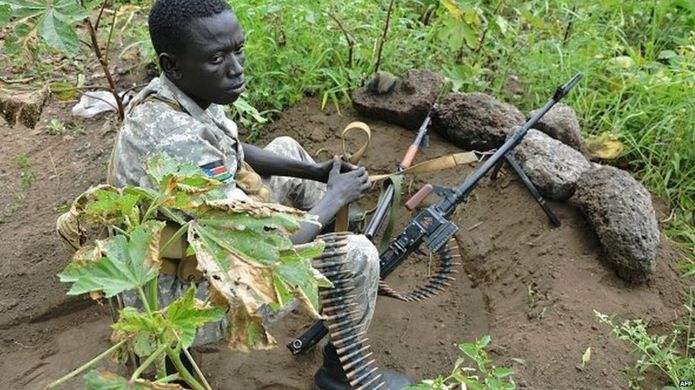
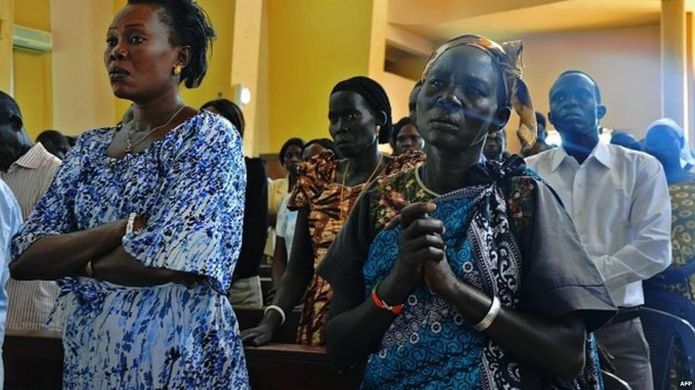
Before the war, South Sudan earned most of its money from selling oil. It accounted for 98% of government revenues. But since then production has halved because some oil fields have been taken over by the rebel forces or damaged.
And with global oil prices having fallen, the government is not getting much for the 160,000 barrels still being produced.
To make matters worse, the government also has to pay Sudan for the oil transported through its pipelines, as part of the deal reached during independence talks.
South Sudan economist Luol Deng says: "I do not want to be scaring people but the government is getting less than it should be getting.
"Out of every barrel passing through Sudan, Sudan gets $24.1 per barrel. So if the price is 30, the government of South Sudan will be getting 5.9."
Officials hope to revise this arrangement in negotiations due to start in September.
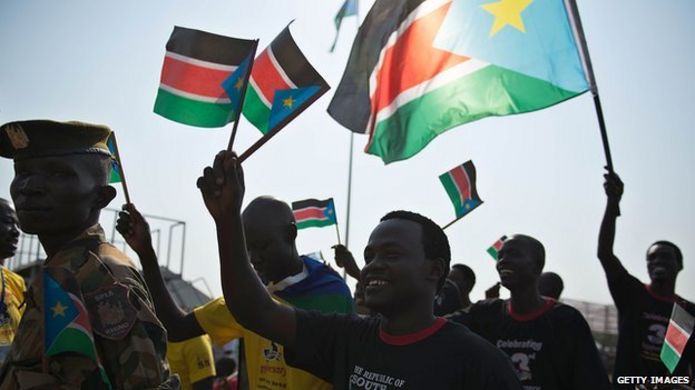
South Sudan: Key facts
Achieved independence in 2011
Population of more than 11 million
Conflict erupts in 2013
More than 2.2 million forced from homes
Almost all government revenue comes from oil
The tough economic situation is not just affecting South Sudanese businesses. Many of the businesses and workers in Juba are from neighbouring countries - including Eritrea, Ethiopian, Kenya and Uganda.
They do not go to commercial banks to send remittances back home or to buy dollars. Many banks, in fact, complain that the central bank does not give them access to dollars.
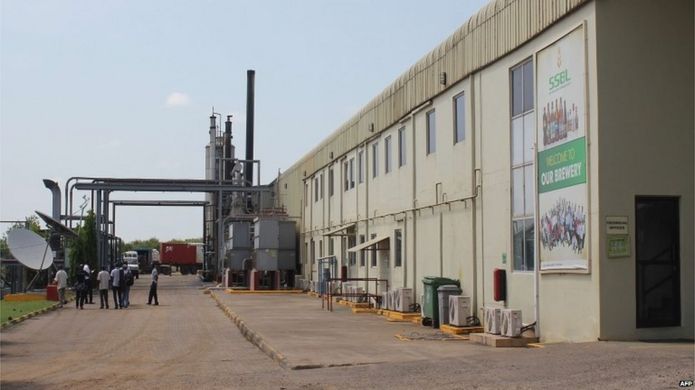
So, business people rely on the expensive rates on the black market.
Despite the difficulties in doing business, hardly any of them want to leave. South Sudan still offers them the hope of getting rich quick, as there is far less competition than in their home countries.
Big businesses also want to stick around.
When SAB Miller opened the country's only brewery in 2009, there was great celebration.
It was a sign of the optimism about the future of an independent South Sudan. But now it's also struggling to stay open, with its MD, Carlos Gomes saying it was only a matter of weeks before the plant closed down.
Some believe the government has diverted too much of its revenue into fighting the rebels, while much of the rest has been lost to corruption.
In a BBC interview, Finance Minister David Deng Athorbei acknowledged that corruption was a problem, but said the government was doing its best to root it out.
He said the government had also asked the IMF and World Bank for financial aid, but they were told to sign a peace deal first.
Mr Athorbei defended spending on the war, saying it was vital.
"Our number one priority now is security, then you come to delivery of services like education, health."
Nevertheless, it seems to have been enough to worsen South Sudan's economic crisis, dashing the hopes of many who had hoped that independence would lead to greater prosperity.